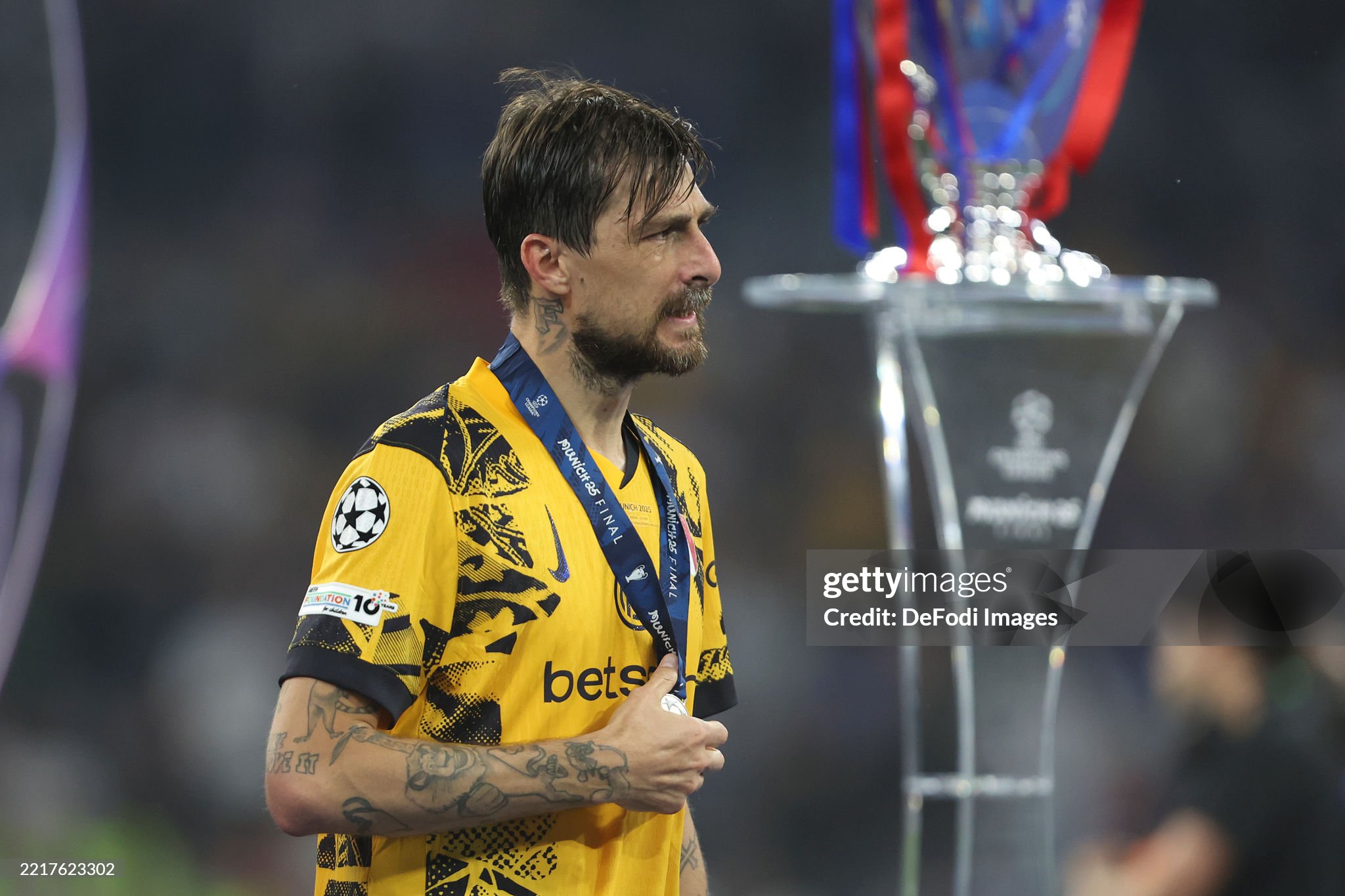Francesco Acerbi appears to have brought his international career with Italy to a close, at least for the foreseeable future, after turning down a call-up from national team coach Luciano Spalletti ahead of the Azzurri’s upcoming World Cup qualifiers.
The 37-year-old centre-back, who recently played in the UEFA Champions League final with Inter Milan, was named in Italy’s squad for two crucial June fixtures a trip to Oslo to face Norway on Friday, June 6 at 20:45, followed by a match against Moldova on Monday, June 9 at 20:45. However, Acerbi will not be part of either game, and his absence has sparked considerable discussion about his future at the international level.
During a press conference on Sunday, Spalletti explained the situation with honesty and clarity. “It’s not a physical issue,” he said. “He’s been uncertain for a while now.” Those words hinted at an internal conflict Acerbi had been grappling with, possibly for months. The decision was not a sudden reaction to a specific event, but rather the culmination of feelings that had built up over time feelings that eventually led the veteran defender to withdraw from the national setup.
Shortly after Spalletti’s remarks, Acerbi took to Instagram to issue a statement of his own. In it, he confirmed that he had personally informed the coach of his decision not to accept the call-up. “After careful consideration, I informed the coach today that I will not be accepting the call-up to the national team,” he wrote. “This was not a decision I took lightly, because it has always been an honor to represent the Azzurri.” The tone of his message was respectful and reflective, but it also revealed a deeper layer of disappointment.
In the same post, Acerbi went further, hinting at tensions within the national team environment that contributed to his decision. “But in light of recent events, the conditions for me to continue this journey are no longer in place,” he continued. “I’m not looking for excuses or favors I just want respect. And if that respect is lacking from those who are supposed to lead the group, then I’d rather step aside.”
Though he didn’t mention anyone by name, the statement was widely interpreted as a veiled critique of Spalletti and his staff. Acerbi appeared to feel marginalized, perhaps sensing that he was no longer considered an integral part of the national team project. “It’s clear that I’m not part of the coach’s plans,” he added. “This is not a definitive decision, and it has nothing to do with anger or the disappointment of losing the Champions League final. I simply feel that taking a step back is necessary right now.”
Acerbi’s message struck a chord among Italian fans, many of whom remember him not just as a consistent performer but as a figure of resilience and leadership. Over the years, he has overcome major personal and professional challenges including a battle with cancer to reach the highest levels of the game. His journey with the national team has been marked by both steady contributions and critical moments, including his role in Italy’s victorious UEFA Euro 2020 campaign, where he provided depth and stability to the backline during crucial matches.
While his statement leaves open the possibility of a return, the circumstances suggest that Acerbi is preparing to bring his international chapter to a close. His last appearance for the Azzurri came in November 2023, and he was absent from Italy’s squad for Euro 2024 due to injury. His call-up last year also drew significant media attention following a controversial incident involving alleged racist remarks during a Serie A match an issue that was heavily scrutinized, with some questioning his inclusion in the national team during that time.
Despite those controversies, Acerbi continued to be a model professional, always prepared when called upon and often serving as a mentor to younger players. His presence in the dressing room, his experience in high-pressure situations, and his tactical awareness will be missed especially as Italy prepares to navigate a challenging qualification campaign for the 2026 World Cup.
For Spalletti, Acerbi’s withdrawal means a further shift toward youth and regeneration. With veterans like Leonardo Bonucci having already retired from international duty and Giorgio Chiellini long gone from the scene, the next generation of Italian defenders must now step up. Players like Alessandro Bastoni, Giorgio Scalvini, and Federico Gatti are expected to assume greater responsibility moving forward.
As Italy prepares to face Norway and Moldova, Spalletti is left without one of his most experienced defenders, but with a clear sense of the changing dynamics within the squad. Acerbi’s decision while painful may be part of a broader transition that sees the Azzurri usher in a new era, one where the focus shifts toward long-term development and youth integration.
For Acerbi, the national team journey may be over, but his legacy remains intact. From his debut in 2014 to his pivotal role in Euro 2020, and through the highs and lows of club and country, he has worn the blue shirt with pride and resilience. Whether or not he returns for one final appearance, his contribution to Italian football will not be forgotten.


